If you're not sure which direction your career should go in, you're thinking about making a career change, or you just want to feel more fulfilled in your career, these ten tips might help.
Ideally, everyone would know their true calling early in life and find happiness in their work, but it often doesn't work that way. One survey (of New York professionals) found that they expected to change careers three times in their lifetimes; lifelong careers may not be the norm any more.
That said, we know there are better ways to choose a career than just following your parents' footsteps or choosing randomly. Here are some ideas.
10. Think About What Excites and Energizes You

This one's the first obvious step—we all want to enjoy and actually like our careers. (Perhaps the biggest sign you're on the wrong path is if you dread talking about your job.) While passion isn't the only requirement for being content in your career, many would say it's still essential, if only because passion is what keeps you going even through the tough times. Is there a job you would do job for free?
9. But Also Keep in Mind What You're Good At
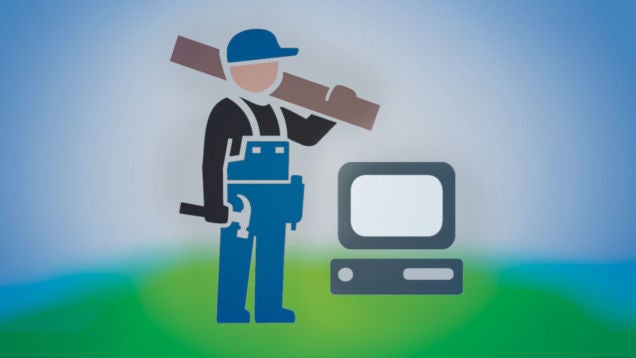
Maybe you don't feel that passionate about any specific career—or you love multiple areas and can't decide on just one. Then it's time to think about your personality and focus on the skills you have. "Don't do what you love. Do what you are."
8. Take a Test
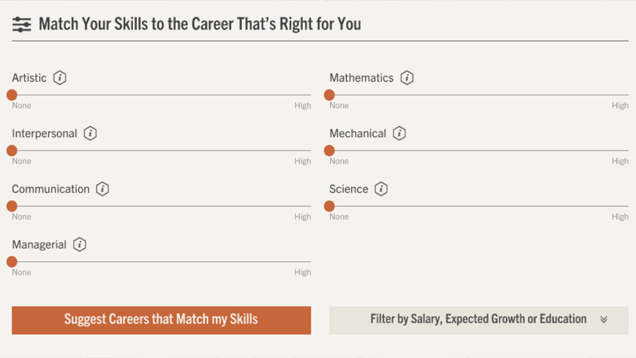
Well, you say, what if you don't know what you're good at or even what you're interested in? Career assessment tests in college or even high school help narrow down a field (perhaps with the Myers-Briggs personality index), but if it's been a while since you took those tests, there are other kinds of assessment tests you can take. This one from Rasmussen College matches your self-reported skills and interests with potential jobs. (And they also have a salary and job growth interactive chart.) For potential programmers, Switch recommends a coding career based on your preferences. About.Com's Job Search site has a collection of other career tests.
You can also find a career that fits your motivational focus with this assessment test.
7. Try an Internship

If you have flexibility when it comes to salary, an internship could be a great way to test out an industry or type of career—and eventually get a full-time job (especially if you have no prior experience). Even if it doesn't turn into a job or you find out it's the wrong career for you, an internship can help build your network—from which you can get career and job advice. (Not all internships are just about picking up coffee. For example, Google internships, while hard to come by, put you to real work.)
6. Find a Mentor

A mentor could help you take your career to the next level and give you the insider insight to help you make sure you're on the right path. Here's how to ask someone to be your mentor.
If there's a career you're interested in, you might also check to see if any companies or people in that line of work would let you shadow them for a few days to see what it's really like.
5. Explore Unconventional Careers

We all know the popular careers available to us—doctor, lawyer, teacher, computer engineer, police officer, store owner, etc. If you feel uninspired by the typical choices, know that there are thousands of unusual jobs you might not have heard about, hidden, perhaps, in the Bureau of Labor Statistics' Occupational Handbook. Mashable has a list of six dream jobs that pay well (panda caretaker! Chocolate inspector!), Thought Catalog highlights 10 more (sex toy testers?!), and Chron lists a couple of others (along with related articles like "Unusual careers with animals" and "unusual accounting careers").
4. Ask Other People
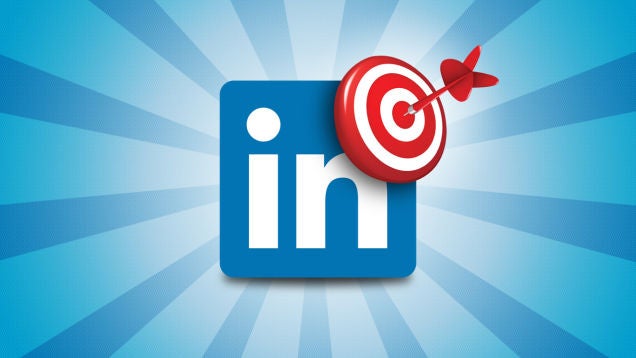
Perhaps the best way to discover a new career is to ask other people about theirs—assuming you come into contact with people who don't all work in the same field. Your LinkedIn network (or other social media sites, but especially LinkedIn) might be a good place to start mining for information. Also, don't forget your local library's reference librarian can point you to career resources.
3. Use the G+P+V Formula

The perfect career for you would most likely fit the G+P+V formula, which stands for Gifts + Passions + Values. Consider your strengths and passions, as we've noted above, and your values—what's nonnegotiable about the way you work?
2. Make a Career Plan
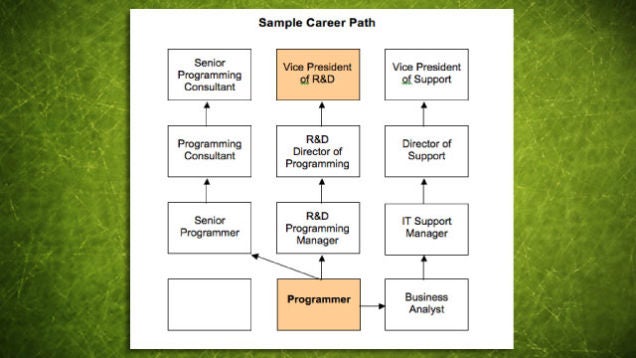
As with most things, your career will benefit if you have goals and a plan for it. Maybe you think you want to be a writer, but the next step after that, is editing. (Do you really want to do that?) Or maybe you want to transition from being an editor to a restaurant owner. (How are you going to get there?) Map out where you want to go, with concrete milestones, as if it were a four-phase project.
1. See Your Career as a Set of Stepping Stones, Not a Linear Path
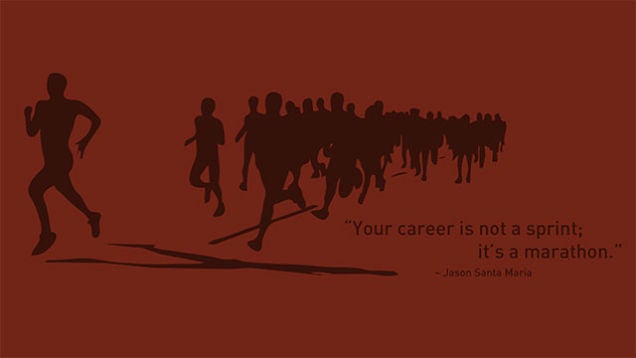
Of course, all these plans and ideas are never set in stone. Your career is a marathon, not a sprint and it can turn out to be a very winding road indeed, knitted together from all of your experiences into, hopefully, a career worth having.
Photos from VoodooDot (Shutterstock), OpenClips (Pixabay), Mopic (Shutterstock), sacks08, auremar (Shutterstock), Little Birth, bobsfever.
Lifehacker.Com
15 minutes with goSwiff’s Sylvie Ackermann
Sylvie Ackermann, head of human resources, goSwiff, shares her thoughts on the key role HR plays in business growth, and how it needs to adapt to face changing employee needs.
Why did you choose HR as a profession?
Interaction with individuals is my passion, and in HR most of my days are filled with conversations and meetings with people.
I am keen on resolving conflicts ideally before they occur, and being head of human resources allows me to take action when needed, in order to avoid conflict situations to develop further.
What do you enjoy most about your work?
At goSwiff, we have a global team across five continents.
I enjoy building the organisation across cultures and continents as well as meeting and making global citizens.
This role gives me the opportunity to learn about different regions, various local HR laws worldwide, and the differences of the countries when choosing the best working environment for every individual.
Something I feel strongly about is finding talent globally to support the company growth, while also supporting personal growth.
Something I feel strongly about is finding talent globally to support the company growth, while also supporting personal growth.
GoSwiff is currently in a fast paced growth in terms of human capital, no longer start up but not yet medium size.
It gives me a unique opportunity to build global and local HR processes. I am working across the regions with the whole leadership team to make sure the HR strategy enables us to support the growth to meet the business goals.
Can you describe a regular workday at your company?
Mornings I usually work with the Singapore team, while afternoons and evenings are dedicated to support the other regions.
We have operations in five continents so there is something happening in every timezone, but fortunately our international team is used to time differences and we can find ways to communicate across time and distance.
Recruitment takes currently a big part of my job, because the company is growing extremely fast and we need to find the right talent to support it.
This includes refining the need and job descriptions with recruiting managers, and briefing recruitment agencies
I am also involved in interviewing candidates, recommending the right people to the management, and negotiating job contracts.
Career planning takes also a big part of my daily job.
We are creating ways of rewarding good performance and highlighting exceptional team results.
Something I enjoy particularly is being available for the staff when they need, to be in sync with the teams on their daily lives.
Something I enjoy particularly is being available for the staff when they need, to be in sync with the teams on their daily lives.
What is the best career advice you have ever received?
The best advice for me that I also would like to pass on to my peers, is to go with your guts in your choice of career.
Try to follow your dreams to figure if they are right for you, and do not be afraid to change path if you feel you are not leveraging your full potential.
How do you think the HR function will evolve in the next five years?
The technology will play a big role in global HR processes, especially in the growing companies that do not yet have all the processes and support functions in place.
Most HR tools are often designed for bigger organisations and cannot be adapted to the needs of smaller but global businesses – so there is a gap in the market for scaled down versions.
Companies need to align the employees’ needs with the business needs.
People want to advance in their career much quicker than the business needs allow, so HR needs to find a way to balance that.
Is there anything you feel HR can do better to play a bigger role in organisations?
It depends on the organisation. In our company human capital is the most important asset, so the importance of HR is huge.
People want to advance in their career much quicker than the business needs allow, so HR needs to find a way to balance that.
We have to put the right processes in place to show that we value each individual and his contribution to the success of our company.
Another business challenge in today’s working environment is the talent retention and succession planning, which are both part of HR’s responsibilities.
Humanresourcesonline.Net
Không có nhận xét nào:
Đăng nhận xét